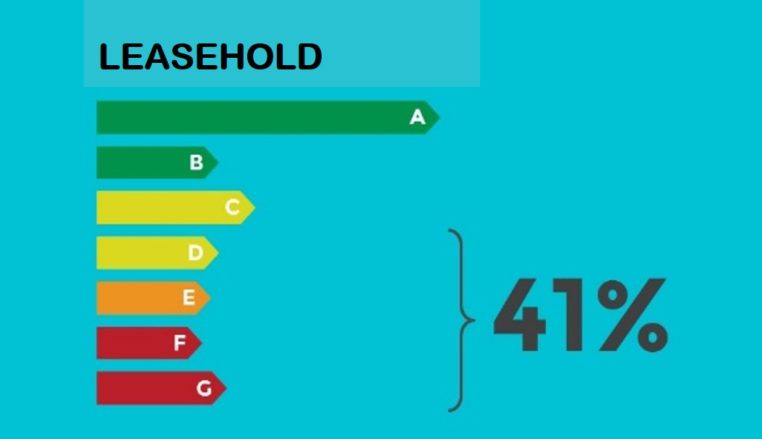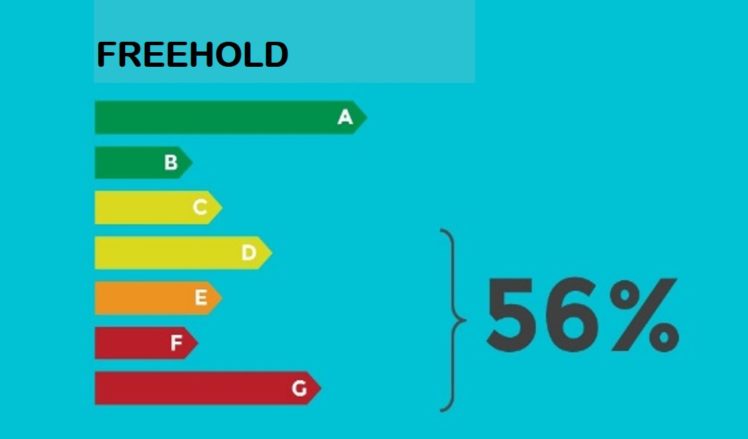On 28 November 2016 the (then) minister for Housing and the Civil Service sent a letter to the lower house of the Dutch parliament in which he announced his plan to make it compulsory for office buildings to have an EPC (energy label) of minimum C as of 1 January 2023. This sounds a long way off but office occupiers and landlords must take this into account straight away. Existing rental agreements must be reviewed and negotiations for new rental agreements must pay specific attention to this proposed new law.
The Dutch government states on its website: “From 2023 there will be not one office in The Netherlands with an energy label worse than label C. Offices with a worse label (D to G) may then no longer be used. Owners of energy slurping offices must make their properties more efficient. That is not a problem because the investment will pay for itself in the savings in energy costs.”. But what are the practical consequences of this proposal?
The model rental agreement used by the Central Government Real Estate Agency has for many years had a clause which contains the minister’s legislation (in any case for agreements of five years or longer). Clear agreements as to the responsibility for providing the building with an EPC of minimum C. The 2015 version of the popular ROZ-model is however not as unequivocal: the only reference to an energy label is the question of whether the tenant has received a copy. According to the Decision on the energy performance of buildings every commercial building should already have an EPC upon sale or rental. With this, the obligation is fulfilled (without any ambition). The Human Environment and Transport Inspectorate (ILT) has to enforce this but in practice is ineffectual.
If we take an ROZ rental agreement in its 2003 (or earlier) incarnations then it becomes interesting. In these model agreements, it is always the tenant that is predominantly responsible for the consequences of new government regulations. There are undoubtedly landlords that will use this rental agreement to pass the costs of compliance with legislation onto the tenant. The ROZ 2015 model is somewhat more tenant-friendly on this point and makes a differentiation between the function of a building and the use which the tenant will make of it. This distinction is important when it comes down to the division of the costs.
As well as that there is also a potential minefield in the division of maintenance responsibilities between landlord and tenant. On the basis of the ROZ 2003 model a large amount of ‘renewal costs’ are for the tenant. The ROZ 2015 model proscribes a sharper definition of the type of maintenance but still also offers possibilities for passing on costs. Fortunately in both ROZ models the landlord is responsible for repair and renewal of the technical installations.
If it transpires that a building must be adapted to comply with the legal requirements then the tenant must also tolerate the operational consequences of significant renovation works according to the ROZ agreements. The tenant may resist a landlord’s renovation proposal (on the condition that it complies with a number of empirical conditions). That will undoubtedly lead to some interesting discussions and maybe even legal procedures!
And what about the advance payment of service charges? If energy saving measures are carried out, then in principle that should lead to a significantly lower service charge reconciliation. The minister asserts that a better energy label will lead to lower energy costs. On the government’s website he states that“… the investment will pay for itself in the savings in energy costs”. The minister misses the fact that in most rental agreements there is no direct relationship between investment in sustainability and the payment of energy costs. The former is deemed to be financed by the landlord while the latter almost always provides an advantage for the tenant. Tenant: assume that at the next extension of the rental agreement the landlord will hold its hands out.


Of all rental properties, approx. 41% has an energy label lower than C. For freehold properties that is 56%.
For tenants in financial services, (quasi-)government and the non-profit sector, these discussions are complicated by the fact that they cannot opt for rentals taxed with VAT. As a result of this a number of these tenants are often located in older (and therefore less energy-efficient) buildings that age-wise are beyond the 10 year revision period. If landlords are compelled to invest large sums in sustainability, they will look to the tenant to compensate them for the VAT on the investment costs that they cannot reclaim where the investment is not regarded as daily maintenance. The Tax Inspector will be busy.
In practice there will be serious negotiations between parties as to the allocation of the benefits and costs. It is not unthinkable that tenants will be prepared to pay more rent in exchange for lower energy costs as long as the advantages are fairly divided and the savings are guaranteed. Preferably on the basis of energy performance contracts.
Obviously, 1 January 2023 is a long way away so why should we concern ourselves at this stage? Very few will dare to predict how the organisation will look in six years’ time so, out of sight, out of mind. Nevertheless there is a number of reasons for occupiers to actively approach this situation:
As tenant it is therefore already essential to take the minister’s plans into account. It means that tenants may even have to relocate even though that was not the intention. Buildings on the ‘underside of the market’ will no longer be able to be run profitably. That could in turn lead to low quality office buildings being withdrawn from the supply whereby in certain cities scarcity could arise and the negotiation of advantageous rental terms will become more difficult.
One thing is certain. This announcement by the minister means that office occupiers – even more than in the past – need to critically assess the sustainability of their office accommodation. And not just in 2023 but now. Redept has the knowledge and experience to help you navigate this minefield.